The legacy that Prof Saleemul Huq left behind
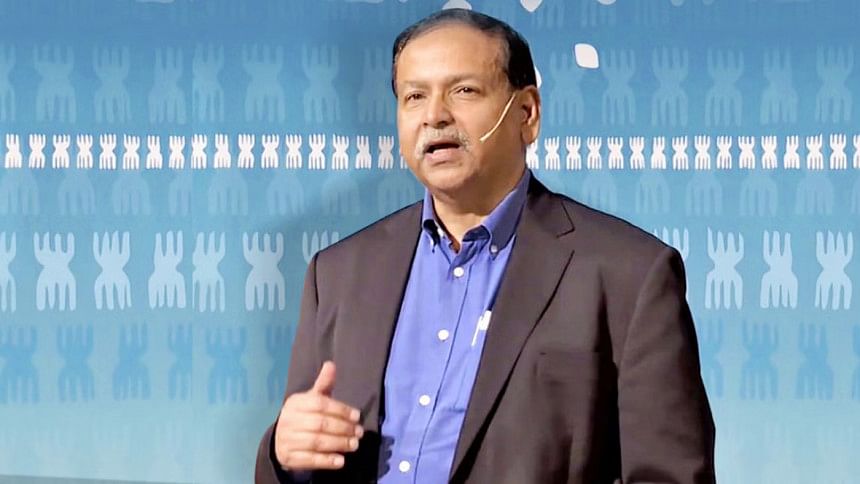
October 29th, 2023—it's a day that disrupted our world of climate action, both in the Global South and Global North. It was the day Prof Saleemul Huq suddenly left us.
Prof Huq was "a giant," "a titan," "a visionary," and so much more. The veteran relentlessly fought for climate justice, representing the underdog: those who faced the harsh impacts of climate change without having contributed to it significantly. Empowering vulnerable people and communities through his empathetic representation of their situation and needs, Prof Huq spoke in their language, listened to them, understood them, and voiced their concerns and demands with a deep sense of urgency. He could relate and communicate with everyone, whether they were a farmer or head of state. He never hesitated to express himself boldly and firmly, especially when it came to climate change issues such as adaptation and loss and damage, causes he was passionate about.
It is because of all these qualities that tributes have poured in from around the world after this huge loss.
I had the privilege of joining Prof Huq on his long and difficult journey of helping those who desperately needed to know how to tackle climate change. I will share the story of how the International Centre for Climate Change and Development (ICCCAD), one of Prof Huq's most impactful creations, came to be.
Prof Huq was truly an extraordinary man with amazing foresight, determination, and ability to drive climate change issues to positions of prominence in public discourse—locally, nationally, and internationally. He had envisioned creating a place that would become the epicentre for climate change adaptation, capacity-building, and research. This vision led him to want to set up an international centre in Bangladesh, a nation well-versed in facing climate change disasters like floods, cyclones, droughts, and sea-level rise. It was also the country that had already taken steps to address these disasters by completing its National Adaptation Programme of Action and developing the Bangladesh Climate Change Strategy and Action Plan. As a result, Bangladesh became the perfect setting for the climate change centre he had conceptualised.
I had the honour of working with him to establish ICCCAD, becoming his first hire as assistant director in October 2009. At that time, Prof Huq was still a senior fellow at the International Institute for Environment and Development (IIED), but was fully devoted to establishing ICCCAD. Subsequently, I became his deputy director and, thereafter, the fellow for international outreach. Over the course of eight years that I worked with Prof Huq in Dhaka and then six out of New York, we developed a productive and positive partnership.
The idea of ICCCAD came into fruition at Independent University, Bangladesh (IUB) as a tripartite initiative, partnering with the Bangladesh Centre for Advanced Studies and the IIED based in London. When I took my position as assistant director, I had relocated recently from New York, where I previously worked with the Rainforest Alliance and pursued my higher studies in urban and environmental policy. Here, I was to be the coordinator-administrator, liaison in the tripartite, overseeing any of ICCCAD's programmatic work and representing Prof Huq when needed.
It initially seemed like a daunting task, as Prof Huq was in London and I was in Dhaka, being the only staff member at that time. However, with the very supportive partnership among the three organisations, assistance from individuals like Terry Cannon (visiting fellow, IIED), and critical support from all areas of IUB, I felt that under Prof Huq's inspiring leadership, I had a team to work with.
Prof Huq was truly a wonderful boss who was fully dedicated to his work. He believed that no challenge was too great to tackle as long as efforts were put forth with the best of intentions. He consistently encouraged innovative thinking, gave a lot of autonomy and support to me and, subsequently, to the staff that eventually joined. Prof Huq allowed for the growth and development of the staff, demonstrating his belief that capacity-building is a dynamic process that enables anyone to be knowledgeable and effective in their area of interest. He wanted to be in a state of preparedness to face any situation and urged us all to do the same.
Prof Huq strongly believed that equipping individuals and organisations on climate change would empower them to address related concerns in both a constructive and productive manner. Essentially, he wanted ICCCAD to help them in tackling these issues. In consequence, ICCCAD conducted its own research, developed short courses and seminars to share critical knowledge with individuals and organisations, a master's programme on climate change and development, which I worked on with the School of Environmental Sciences Management (IUB), and hosted visiting researchers from universities both local and international. Additionally, ICCCAD offered internships and collaboratively organised national and international conferences such as Gobeshona, which enabled knowledge exchanges on climate change between national and international researchers, and the Urban Resilience conferences, which aimed to develop a better understanding of sustainable urban development.
Prof Huq received so many accolades, which he rightly deserved. He was conferred the Order of the British Empire (OBE) by the British government in 2022 and was named one of the top 10 scientists in the world in 2022 by the journal Nature. He attended every COP (Conference of Parties), an annual climate global summit, and became a force at each one, championing the cause of the vulnerable countries susceptible to the impacts of climate change. Prof Huq was also a lead author of the Intergovernmental Panel on Climate Change (IPCC) chapters.
At the COPs, he would set up an "office" by selecting a table or area where people could easily see and approach him. Even with his multitude of achievements, he was always keen on sharing the limelight because, to him, the end goal of pushing the climate agenda forward mattered the most. He worked endlessly to bring the loss and damage issue to the forefront of international meetings and pushed for a fund to support it. It is very unfortunate that Prof Huq could not see it through at the upcoming COP, but I am certain that the memory of his tireless efforts in this field will keep on motivating others forward. It would be very appropriate for the government to honour him with a recognition like the Swadhinata Padak.
Prof Huq was a remarkable strategist, networker, changemaker and mobiliser who was able to galvanise individuals, organisations and countries on issues important for the climate cause. He was passionate about bringing about change sooner rather than later.
He has instilled in each of us a vision and determination to move the pressing climate change concerns to the forefront and demand appropriate action.
Who will fill this massive void that Prof Huq has left behind? Altogether, we will have to rise to the occasion and meet the challenge. He has instilled in each of us a vision and determination to move the pressing climate change concerns to the forefront and demand appropriate action. He has created an army of qualified individuals to work towards a better future. As he used to say, together, we are a tremendous force to be reckoned with. No task is too formidable. A path will always be there.
Prof Saleemul Huq fought for climate justice. He fought for us to have a future where we can enjoy Earth and all it has to offer. We must conjointly continue his legacy to ensure a safe, liveable planet for future generations.
Ina F Islam is fellow of international outreach and former deputy director of the International Centre for Climate Change and Development (ICCCAD).
Views expressed in this article are the author's own.
Follow The Daily Star Opinion on Facebook for the latest opinions, commentaries and analyses by experts and professionals. To contribute your article or letter to The Daily Star Opinion, see our guidelines for submission.

 For all latest news, follow The Daily Star's Google News channel.
For all latest news, follow The Daily Star's Google News channel. 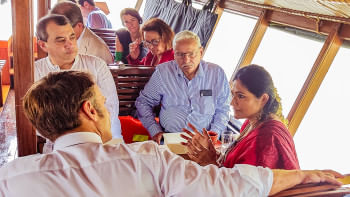
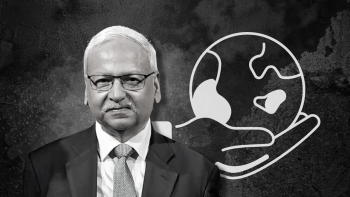



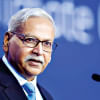

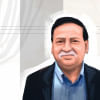


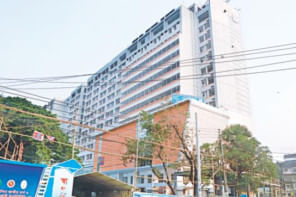
Comments